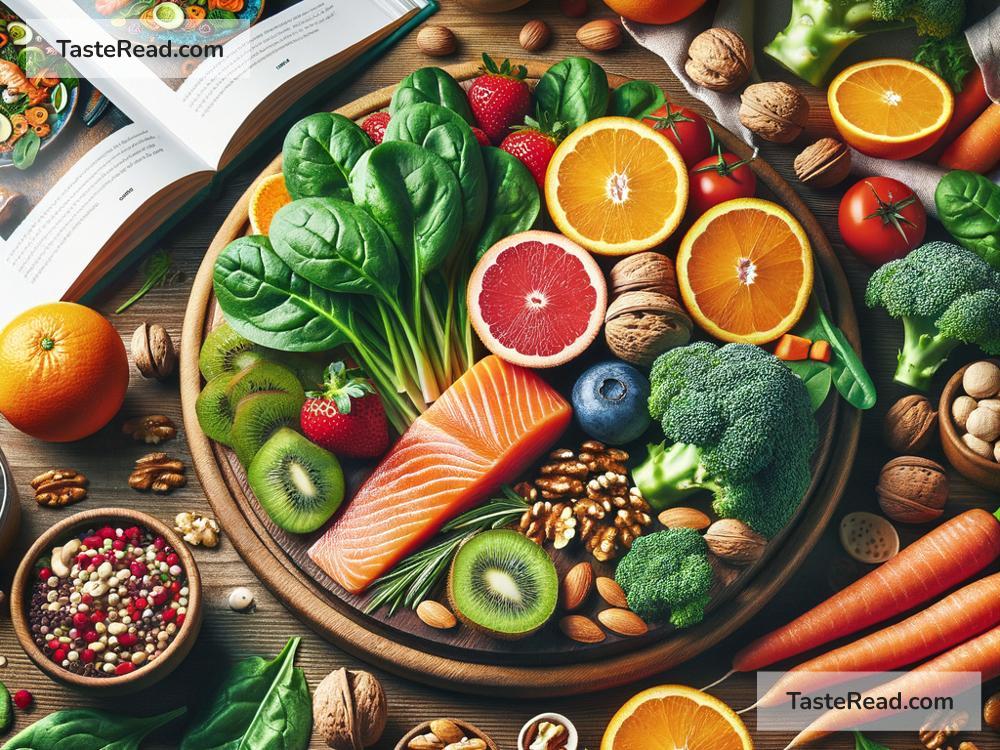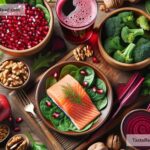Foods That Reduce the Risk of Eye Infections
Our eyes are one of the most important organs in our body. They allow us to see the beautiful world around us and help us navigate daily life. However, just like any other part of the body, our eyes are vulnerable to infections. Conditions like conjunctivitis (pink eye), styes, and other eye irritations can cause discomfort and impact our ability to see clearly. Thankfully, eating the right foods can help strengthen your eye health and reduce the risk of infections.
Here’s a simple guide to foods that can keep your eyes healthy, boost their immune defenses, and lower the chances of infections.
1. Foods Rich in Vitamin A
Vitamin A is one of the most important nutrients for your eyes. It helps maintain your cornea (the clear outer layer of your eye) and ensures your eyes have a strong barrier against infections. Vitamin A also plays a role in producing mucus and tears, which keep your eyes moist and flush out irritants.
Good sources of Vitamin A include:
– Carrots: A popular superfood for eye health. Carrots are loaded with beta-carotene, which your body converts into Vitamin A.
– Sweet potatoes: Packed with Vitamin A and antioxidants to protect your vision.
– Leafy greens like spinach and kale: These vegetables contain lutein and beta-carotene, both of which support healthy eyes.
By incorporating these foods into your diet, you can fortify your eyes against infections and dryness.
2. Vitamin C-Rich Foods
Vitamin C is a powerful antioxidant that strengthens the tissues and blood vessels in your eyes. It also helps your body fight off harmful bacteria and viruses that can cause infections. Keeping your immune system strong can indirectly protect your eyes from potential irritants and invaders.
Foods high in Vitamin C include:
– Citrus fruits: Oranges, lemons, grapefruits, and limes are full of Vitamin C.
– Strawberries: Delicious and nutritious, they’re also packed with antioxidants.
– Bell peppers: Especially red and yellow peppers, which are rich in both Vitamin C and Vitamin A.
Adding these foods to your meals can help protect your eyes from redness, swelling, and irritation caused by infections.
3. Omega-3 Fatty Acids
Omega-3 fatty acids play a critical role in your overall eye health. They help reduce inflammation, support healthy tear production, and prevent dry eyes. A well-moisturized eye surface is less likely to get infected since dry eyes can attract bacteria or viruses.
Great sources of Omega-3s include:
– Fatty fish: Salmon, mackerel, and sardines are fantastic options for boosting Omega-3s.
– Walnuts and chia seeds: Perfect plant-based alternatives for vegetarians.
– Eggs enriched with Omega-3s: A practical option for breakfast.
Eating foods rich in Omega-3 fatty acids promotes better lubrication for your eyes and creates a protective barrier against infections.
4. Zinc-Rich Foods
Zinc is another mineral that plays a key role in maintaining eye health. Zinc helps your body absorb Vitamin A from foods and delivers it to your retinas, where it supports healthy vision. It also boosts your immune system, which makes it easier for your body to fight off potential infections, including bacterial buildup in your eyes.
Zinc-rich foods include:
– Oysters: The highest food source of zinc.
– Beef and poultry: Moderate quantities of zinc are found in meats.
– Pumpkin seeds and lentils: Vegetarian options that are rich in zinc and other nutrients.
Including zinc in your diet ensures your eyes stay strong and resilient against irritants.
5. Probiotic Foods
Probiotics are “good bacteria” that help your gut and immune system stay balanced. A healthy immune system supports your body in fighting infections everywhere, including the eyes. While probiotics don’t directly target eye infections, they keep your overall health strong, which indirectly benefits your eye health.
Probiotic-rich foods include:
– Yogurt: Opt for plain, unsweetened versions with live cultures.
– Kimchi and sauerkraut: Fermented vegetables with gut-friendly bacteria.
– Kefir: A tangy, probiotic drink that supports digestion and immunity.
Maintaining good gut flora with probiotic foods helps strengthen your body’s defenses against infections, including those in your eyes.
6. Hydrating Foods
Dehydration can lead to dry eyes, which are more prone to irritation and infections. Eating hydrating foods and drinking enough water can help combat dry eye syndrome and keep your eyes comfortable.
Hydrating foods include:
– Cucumbers and watermelon: Low in calories but high in water content.
– Celery and zucchini: Great snacks that contribute to your daily water intake.
– Soups and broths: They’re easy to digest and hydrating.
Combined with proper hydration habits, these foods help keep your eyes moisturized and less prone to infection.
Final Thoughts
A healthy diet is one of the simplest ways to protect your eyes. Incorporating foods rich in vitamins (A, C, and E), Omega-3 fatty acids, zinc, probiotics, and hydration can help boost your eye health while reducing the risk of infections. Remember that good nutrition is only part of the equation—wash your hands regularly, avoid touching your eyes, and wear sunglasses to protect your eyes from external irritants.
Your eyes deserve the best care, and it starts with the foods you choose to eat. So, fill your plate with colorful veggies, juicy fruits, hydrating options, and nutrient-rich proteins. Your vision—and your future self—will thank you for it!


